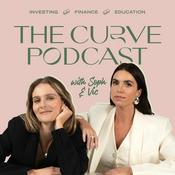37 episodes
- There’s no denying that technology plays — and will continue to play — a critical role in addressing the climate crisis. But could super-intelligent AI actually solve the problem for us, as several tech billionaires claim? Or is this over-reliance on speculative technology simply a way to distract us from tackling big, real-world problems. Manjula Selvarajah sits down with astrophysicist and author Adam Becker to separate the hype from reality.
Featured in this episode:
Adam Becker is an astrophysicist, journalist and the author of More Everything Forever, a book that examines the futuristic ideologies of Silicon Valley’s tech titans. He is a former science journalism fellow at the Santa Fe Institute and was also a science communicator in residence at the Simons Institute for the Theory of Computing at UC Berkeley.
Marcius Extavour is a scientist, creative technologist and communicator who develops solutions for climate change and clean energy. As a partner at Ode, a technology and creative design firm specializing in geospatial AI. He previously built the energy, climate and carbon removal practice at XPRIZE.
Further reading:
Silicon Valley is at an inflection point
Tech oligarchs are gambling our future on a fantasy
Travelling to Mars and beating death: The futurist creed of tech’s apostles
More Everything Forever
Subscribe to Solve for X: Innovations to Change the World here. And below, find a transcript to “Infinity quest.”
Solve for X is brought to you by MaRS, North America’s largest urban innovation hub and a registered charity. MaRS supports startups and accelerates the adoption of high-impact solutions to some of the world’s biggest challenges. For more information, visit marsdd.com. - Our energy grid is something most of us only think about when it isn’t working. But growing demand for electricity is placing an even greater strain on a system that’s already facing increased pressure from extreme weather events. Can we build a more sustainable and dependable grid? In this episode, which originally aired September 2022, we explore how when it comes to climate change the challenge of greening the grid is as much an issue of complex engineering as it is about policy and equity.
Featured in this episode:
Josh Wong is the former CEO of Opus One Solutions, which was acquired by General Electric. In 2024, Josh founded a new company called ThinkLabsAI and is developing software that will help utilities to integrate renewable sources of energy and improve grid resilience.
Destenie Nock is an assistant professor at Carnegie Mellon University who specializes in public policy, civil and environmental engineering. She’s an expert on how our changing climate is impacting the grid, and what that means for the future. Focusing on energy equity, Destenie explains what’s important to consider in our transition to clean energy.
Dana Tizya-Tramm is the former chief of the Vuntut Gwitchin First Nation in Old Crow, Yukon. Dana helped establish the Old Crow Solar Project — shifting the northern remote community off diesel to renewables. Through his efforts, Old Crow is making inroads toward energy sovereignty. He is now the director of Nadlii and is working on developing a framework for Indigenous data sovereignty and ethical AI.
Further reading:
2021 placed exceptional demands on electricity markets around the world
Renewable Energy Is Great—but the Grid Can Slow It Down
Global heat waves are so bad that utilities are paying their customers to use less energy
“Nation-building” investments in electricity grid needed to reach net-zero, experts say
How Old Crow’s solar farm is changing green energy projects in Yukon | CBC News
Subscribe to Solve for X: Innovations to Change the World here
Solve for X is brought to you by MaRS, North America’s largest urban innovation hub and a registered charity. MaRS supports startups and accelerates the adoption of high-impact solutions to some of the world’s biggest challenges. For more information, visit marsdd.com. Power to the people: How solar energy — cheap, plentiful and available everywhere — is poised to change the world
27/11/2025 | 48 mins.As you may have heard, solar energy is having a moment. Thanks to several technological breakthroughs, it’s now the cheapest form of energy generation in most places on Earth. This past summer, for the first time ever, it became the EU’s main source of electricity, and many other parts of the world — Pakistan, Nigeria and most famously, China — are likewise in the midst of a solar boom of astonishing speed and scale. In this episode, experts weigh in on the social, political and economic implications of this revolutionary energy shift — and the complicated way that Canada fits into it all.
Featured in this episode:
Sara Hastings-Simon is an associate professor in the department of Earth, Energy and Environment and an assistant professor in the School of Public Policy. Her work focuses on understanding how low-carbon energy transitions happen within different sectors of the economy, constrained by existing infrastructure and business models, and how policy response can improve outcomes. She also hosts, alongside David Keith and Ed Whittingham, the live webinar and podcast Energy vs Climate.
Mike Andrade is the chairman and CEO of Morgan Solar, a Toronto company whose products improve the performance of solar projects and the energy efficiency of buildings. A former executive at IBM and a founding member of Celestica, he’s also an investor and advisor to several other companies, a member of the Council of Canadian Innovators and a board member of the Next Generation Manufacturing Supercluster.
Chris Caners is general manager at SolarShare, a renewable energy co-op in Ontario. He’s also a consultant who advises organizations on climate, energy efficiency and sustainability.
Thomas Timmins leads the Canadian energy sector practice at Gowling WLG in Toronto. He specializes in helping clients navigate opportunities in the global energy transition.
Deb Chachra is a professor of engineering at Olin College and the author of How Infrastructure Works: Inside the Systems That Shape our World.
Further reading:
• Seizing the moment of opportunity
• Free electricity. Like, at no cost. For everyone. Now.
• Pakistan’s solar boom
• There’s a race to power the future. China is pulling away
• What if Canada invested in solar energy?
• The solar rush
Subscribe to Solve for X: Innovations to Change the World here. And below, find a transcript to “Power to the People.”
Solve for X is brought to you by MaRS, North America’s largest urban innovation hub and a registered charity. MaRS supports startups and accelerates the adoption of high-impact solutions to some of the world’s biggest challenges. For more information, visit marsdd.com.- Get ready for Solve for X season four! Join journalist Manjula Selvarajah as she goes behind the hype and headlines to make sense of how new technologies are reshaping our world. This season we learn about the solar revolution, robot dexterity, a device that zaps forever chemicals and more. Subscribe and listen beginning November 27. Solve for X is brought to you by MaRS, North America’s largest urban
innovation hub and a registered charity. MaRS supports startups and
accelerates the adoption of high-impact solutions to some of the world’s
biggest challenges. For more information, visit marsdd.com. - By uncovering critical sex-based differences related to brain and metabolic health, researchers Gillian Einstein and Minna Woo are making the case that tailored interventions are key to improving health outcomes for women — and everyone else. Through their work exploring how conditions from Alzheimer’s to kidney disease can have varied effects depending on a patient’s sex, they underscore what the medical community as a whole can learn from experts in women’s health: Things aren’t as simple as we want to believe. In this bonus episode, recorded live on May 8, 2025, at the MaRS Impact Health Conference, Einstein and Woo discuss the complexity of biology, the challenges of funding and why they’re optimistic that things are changing.
Featured in this episode:
Gillian Einstein is the Wilfred and Joyce Posluns Chair in Women’s Brain Health and Aging and a psychology professor of psychology at the University of Toronto. She’s also an adjunct scientist at Baycrest and Women’s College Hospitals, and an honorary doctor of medicine at Linköping University, Sweden. Her lab’s current focus is on estradiol loss as well as how stigma and immigration affect memory and cognition in diverse populations of women.
Minna Woo is currently the director of the Banting and Best Diabetes Centre at the University of Toronto and recently completed a 10-year term as division director of endocrinology and metabolism at the Toronto General Hospital, University Health Network (UHN). She now holds the Ajmera Chair in Molecular Diabetes Research at the Toronto General Hospital Research Institute and is a clinician scientist and a staff endocrinologist providing diabetes and endocrine care at UHN. Her laboratory focuses on molecular mechanisms that determine the pathogenesis of insulin resistance and related diseases. She has published more than 100 research articles and her research is internationally recognized as a member elect of the American Society of Clinical Investigation.
Katherine Ward is an award-winning journalist currently working with Global News in Toronto. She joined the team in 2018 and has covered a wide range of stories taking her all over Ontario. This year, Ward was also part of an investigative team that exposed the prevalence of lead contamination in drinking water. “Tainted Water” went on to win a national award with Canada’s Radio Television Digital News Association.
Further reading:
• From body to brain: Understanding how sex and gender contribute to brain health as we age
• More women get Alzheimer’s than men. It may not just be because they live longer
• Sleep quality and the menstrual cycle
• Breaking down sex and gender barriers in search of precision medicine
• Canada accelerates diabetes research
Subscribe to Solve for X: Innovations to Change the World here.
Solve for X is brought to you by MaRS, North America’s largest urban innovation hub and a registered charity. MaRS supports startups and accelerates the adoption of high-impact solutions to some of the world’s biggest challenges. For more information, visit marsdd.com.
More Business podcasts
Trending Business podcasts
About Solve for X: Innovations to Change the World
Solve for X uncovers what’s next. Join journalist Manjula Selvarajah as she dives into the latest tech innovations shaping our world. How are satellites revolutionizing the fight against climate change? Could music be the medicine we need? What will it take for Canada to lead the global tech scene and achieve a zero-emission future? Discover the answers to these questions and more in the next season of Solve for X.
Podcast websiteListen to Solve for X: Innovations to Change the World, Friends That Invest and many other podcasts from around the world with the radio.net app

Get the free radio.net app
- Stations and podcasts to bookmark
- Stream via Wi-Fi or Bluetooth
- Supports Carplay & Android Auto
- Many other app features
Get the free radio.net app
- Stations and podcasts to bookmark
- Stream via Wi-Fi or Bluetooth
- Supports Carplay & Android Auto
- Many other app features


Solve for X: Innovations to Change the World
Scan code,
download the app,
start listening.
download the app,
start listening.







































